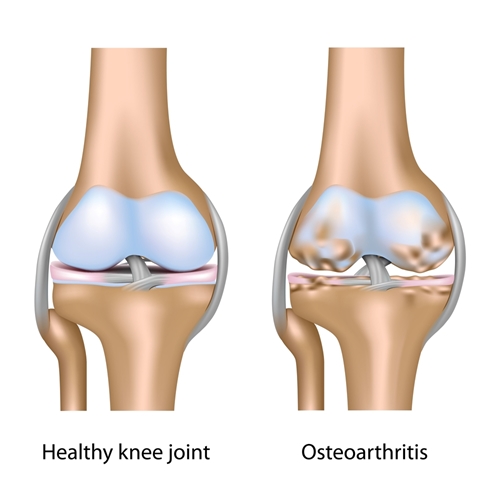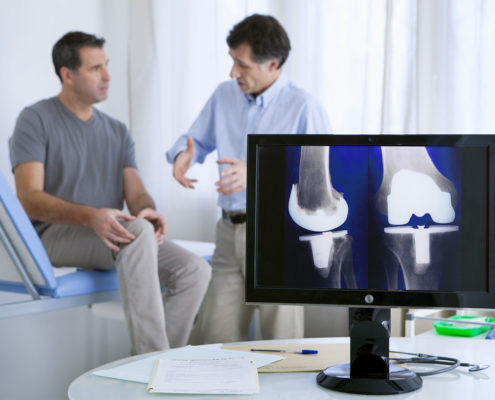
Researchers develop imaging technology to see through metal orthopedic screws
Broken bones are not only painful, but the healing process can also be long and arduous as patients experience a marked decrease in mobility.

Clear assessment of business goals key to successful EHR system change
There are times when an electronic health record system just does not cut it when it comes to performing as part of a business.

Scribes can ease burden of data entry for physicians
Reaction on the widespread implementation of electronic health records continues to roll in with many studies and reports focused on quantifying the impact that EHR systems have when it comes to identifying undiagnosed conditions that may otherwise be missed without interoperable stores of medical data.

Studies link weight loss to decreased pain, successful joint replacements
Many people associate weight loss with a better aesthetic image of themselves, and while the health benefits are obviously known as well, they most often come as a secondary benefit in a diet and exercise regimen.

Survey suggests health care providers confident in ICD-10 preparation efforts
More so than meaningful use requirements, the transition to the new system of ICD-10 billing codes has posed numerous headaches for medical professionals concerned about their organizations' preparation for the Oct. 1 deadline.

Small practices driving increase in EHR usage rates
Small practices traditionally have not had access to the vast resources and time management process available to large organizations that make electronic health record system implementation a much smoother process.

Sepsis onset, mortality rates predicted by EHR information
When patients are admitted to a hospital for a procedure, the expectation is that only the condition in question will require treatment.

Study suggests shorter recovery period for hip replacement patients
Orthopedic surgery is all about maintaining a level of mobility and independence in the patient.

EHR information stored in HIEs reduces ER admissions 30 percent
Meaningful use requirements are increasingly expected to prompt more practical use of electronic health record systems as the rote implementation guidelines of stage 1 are expanded upon with the more comprehensive ones of stage 2.

CMS disburses almost $23 billion in meaningful use incentives
The Centers for Medicare and Medicaid Services' meaningful use program has been criticized heavily in recent months for the amount of extra work it has placed onto the shoulders of medical practices across the country.

Executives say EHR information breaches caused by employees, lost devices
The patient data stored in electronic health information records can benefit physicians through on-site examinations and screenings for potential conditions, but the true value of EHR systems relies on their ability to communicate across provider networks.

Study suggests link between finger length and knee replacement surgery
Every year, millions of Americans require some form of orthopedic surgery to alleviate the symptoms caused by the breakdown of cartilage in joints.

CMS clarifies requirements for meaningful use hardship exemption
Physicians and federal agencies alike hope that the meaningful use incentives program will eventually produce sweeping benefits for the health care industry through the use of electronic health records systems.

With hard ICD-10 deadline, physicians should voice concerns with vendors, providers
Over the last few months, health care provider groups such as the American Medical Association and American Hospital Association have doggedly pursued the easing of requirements for meaningful use and ICD-10.

At-risk lung cancer patients identified by EHR screening
At times, meaningful use requirements can seem like busy work blindly focused on attesting for incentive payments, but with increasing frequency, electronic health records are being used in ways that increase the potential of physicians to administer effective treatment.

Secure EHR systems can help avoid data breaches, HIPAA fines
Data breaches can be health care IT professionals' worst nightmare.

Columbia Orthopaedic Group
“It is a specialty-specific EHR designed to support and enhance the efficient workflow of orthopaedic physicians,” says Austin.

Stage 2 requirements should be approached holistically
Now that stage 2 of meaningful use is well under way, some health care professionals are wondering how they can optimize their response to the next phase of the industry-wide transition to electronic health records.
